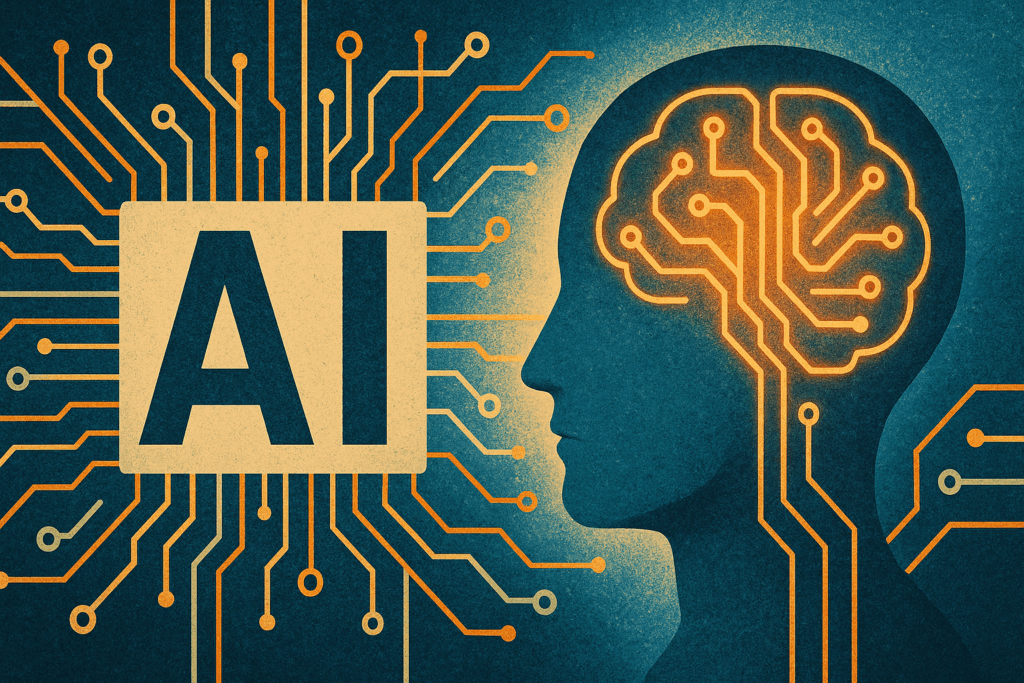In a world where AI is reshaping every facet of business, from operations to outreach, it’s tempting to believe that automation and intelligence alone will win the sale. We’ve got tools that can analyze buyer behavior, generate pitch decks, write cold emails, and even simulate discovery calls. But here’s the truth every sales leader eventually comes to grips with: in today’s complex selling environment, AI may enhance the process, but it can’t replace the person.
Today’s buyers are more informed than ever. They’ve read the reviews, done the demos, and compared your product with five others before ever replying to your email. They don’t need another automated sequence. They need a reason to trust you.
That’s why human connection is not just a “nice to have”—it’s the differentiator.
In the current sales climate, we’re seeing two forces collide. On one hand, efficiency is king. Companies are trying to do more with less. Sales cycles are scrutinized. Headcount is lean. Leaders are asking their teams to scale without sacrificing personalization. On the other hand, buyers are craving authenticity. They want to feel seen, understood, and guided—not pushed.
So where does that leave us?
It leaves us with a clear challenge—and a massive opportunity. Salespeople who can marry the precision of data with the nuance of human emotion will win. Those who can connect deeply while communicating clearly will stand out. Those who understand how people think, decide, and feel will be trusted advisors—not just vendors.
The future isn’t AI or humans. It’s AI andhumans.
At Braintrust, we’ve been saying this for years. Sales isn’t about manipulation. It’s about communication. It’s about understanding the science of trust, the psychology of decision-making, and the structure of a conversation that actually moves someone from uncertainty to action.
Technology can support that. It can even accelerate it. But it can’t replace the moment when a rep hears something between the lines and chooses to ask a better question. It can’t replicate the gut feel that tells a sales leader, “This deal is off-track emotionally, not just tactically.” And it certainly can’t build the type of relationship that makes a customer say, “I want to work with you—not just your product.”
In today’s buying environment, the stakes are high. Multiple decision-makers. Limited budgets. Long procurement processes. Sellers have to navigate not just objections, but complexity, confusion, and competing priorities. Buyers don’t want to be “sold to.” They want clarity. They want a partner. They want someone who will help them make a decision they can feel good about.
That’s why we believe the most successful sellers today, and in the future, will be those who’ve mastered the art and science of connection.
We see it play out with clients all the time. A rep can have the best tools, the best product, and the best pitch—but if they can’t connect on a human level, the deal stalls. Conversely, when a rep creates trust early in the conversation, brings empathy to the discovery process, and communicates with purpose, the buyer leans in. That rep becomes more than a salesperson. They become a guide.
And that kind of presence? It can’t be automated.
What we need now is not just more productivity but better communication. Not just faster funnels but deeper relationships. We need sellers who know how to ask the right questions, tell the right stories, and build the kind of trust that leads to action.
That’s the heart of what we teach through NeuroSelling®. We equip sales teams with the neuroscience-based frameworks to connect with how buyers actually think and feel. We show them how to lead conversations that build trust, create urgency, and drive action—without manipulation or pressure. We integrate the best of behavioral psychology with the power of storytelling and the structure of science.
Because no matter how much technology changes, one thing stays the same: people buy from people.
The climate around us may be shifting—faster tools, leaner teams, tighter budgets, but the foundation of sales is still human. In fact, now more than ever, your people arethe differentiator.
The organizations that will win in this next chapter are the ones who invest not just in automation, but in authenticity. Not just in enablement platforms, but in human potential. Not just in data, but in trust.
Because in a world full of noise, the clearest signal is a human voice that understands what matters most.





